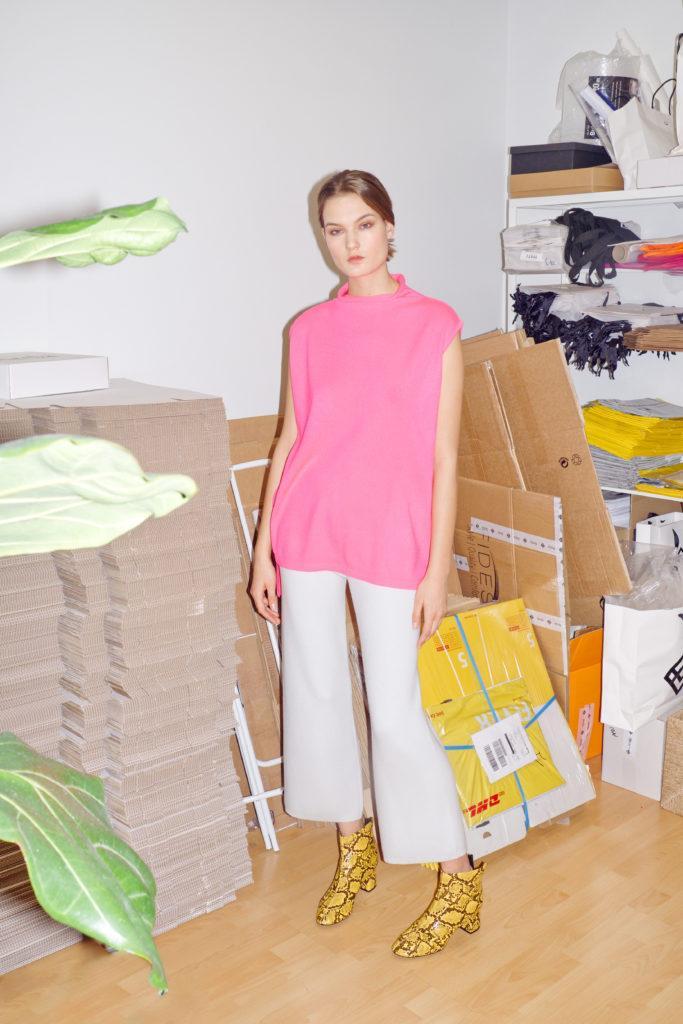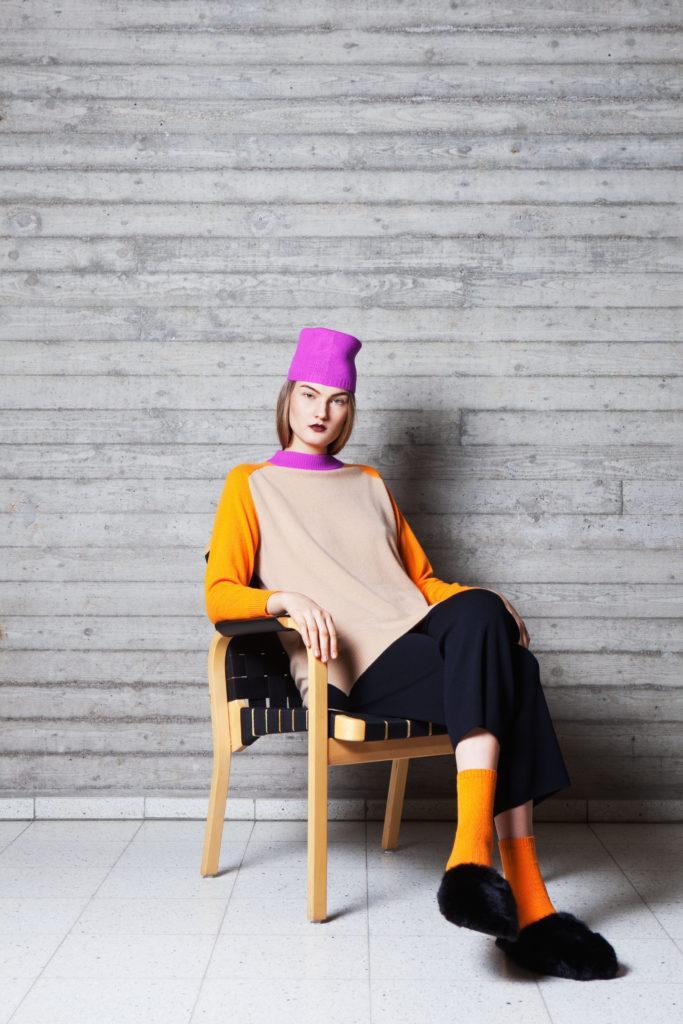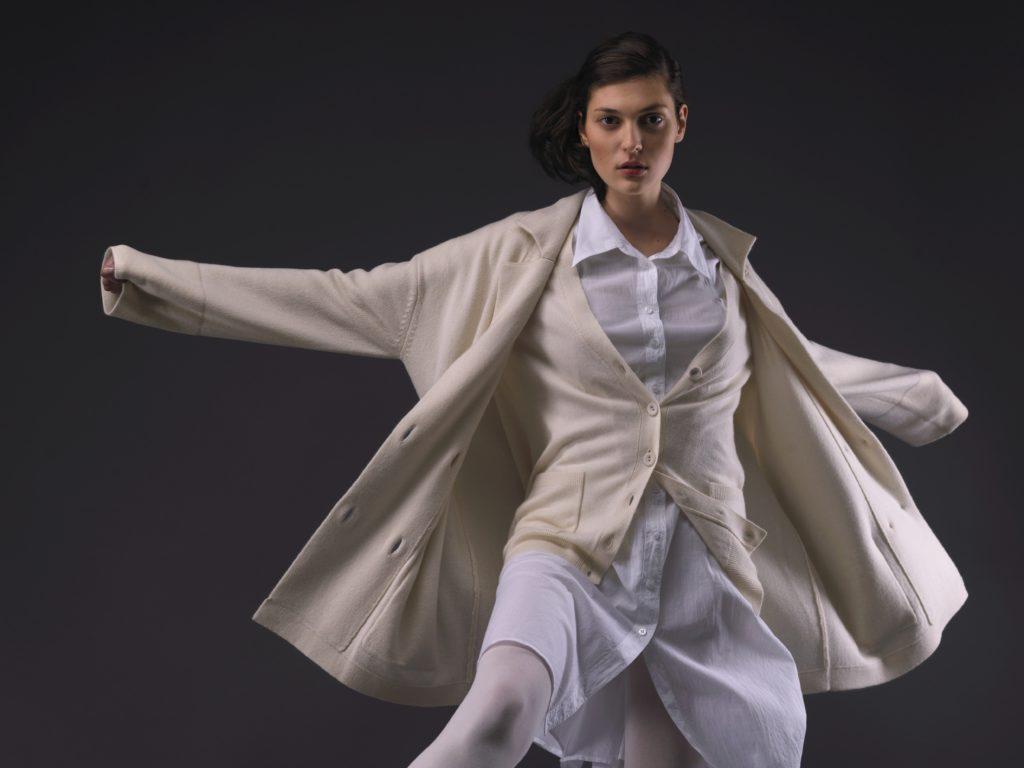Maija Arela has expanded her business from sustainable fashion to garment maintenance
Maija Arela, founder of the family-owned Arela, is also known for her work in the Intercolor, an international and interdisciplinary platform of colour experts, which decides the global fashion colours.
Arela is a family business run by Maija Arela (b. 1950) and her two daughters Anni and Viivi. It is best known for its cashmere and merino knitwear and its ground-breaking knitwear care service. Clothes designer Anni Arela is the company’s head designer, while Viivi Arela, an Arts Major, is head of communications and an avid speaker and advocate of sustainable development.
“I’m really happy to have got to this point,” Maija Arela says. Her only regret is not having founded Arela sooner. “I’m excited, feet off the ground and I dare to take risks,” she characterizes herself.
The Arela store is located in Kämp Garden in Helsinki. The products are also sold by Sokos and Stockmann and about ten other dealers in Finland. Growing the business has its challenges. “I’d like to hire more people, but it’s difficult for a small entrepreneur,” Maija Arela says.
“Exports are running smoothly – to England, Germany, France and Korea – and growth there requires big investments. We have a PR office in London and have received a lot of visibility, which increases sales. Americans buy Arela products online. The articles in the New York Times have really boosted our cashmere product sales. These are important steps that add to global brand recognition,” Arela explains.
In lifestyle business a garment can be part of the décor or serve as a source of well-being
Arela says she is in the lifestyle not the garment business. That means a garment can be part of the décor, like a beautiful robe hanging on a wall, or that a garment can serve as a source of well-being. “I feel that cashmere makes you relaxed. A soft garment caresses and calms you when you put it on after a day at work.” In Arela’s opinion, cashmere is perfect for the Finnish climate because it keeps you warm without making you too hot.
Arela believes that the debate on the ethics of the garment industry has put entrepreneurs in too tight a corner. “The garment industry has been found guilty of many things – and for good reason. Our products are of high quality and the whole production chain is transparent. We continually strive to improve our operations.”
“People have started to say that elastane is toxic and something truly evil, but things are not black and white. Elastane helps T-shirts to retain their body and shape. Elastane-cotton can also be recycled as it can be made in different ways.”
Arela wants to make durable clothes and offers a paid care service for Arela knits. To her, responsibility also means production in small enough batches in which nothing goes to waste. “We are asked to care for Arela knits that are a decade old. That makes me happy, even if it means fewer sales of new products. The most important thing is that the customer is happy and able to enjoy the garment for a long time.”
Initially, the clothes were serviced for free, but the demand took Arela by surprise. The care service is still considerably cheaper than buying a new product. “Care service has become a significant business for us and at the same time it acts as a guarantee to the buyer.”
Arela sells cashmere combs with which customers can care for their knits by removing pilling. Arela has also developed a vegan detergent that is manufactured in Hamina and scented with bergamot and cedarwood.
Arela knits are made in Nepal. The merino wool is sourced from Italy and the cashmere material from China. The cotton comes from Turkey, and the cotton products are sewn in Estonia. The linen clothes are made in Lithuania from start to finish. The production costs in the Baltics are on the rise. “Our prime costs are not small, but cutting them has never been our priority,” says Arela. “Our T-shirt costs 65 euros, but it will last much longer than a 10-euro T-shirt.”
Colour specialist and member of Intercolor
It all started with colours. Colour is something Maija Arela has always been interested in, even as a baby. She has been told that her entire demeanour as a three-month-old girl changed when an auntie in a floral dressing gown dashed in.
Arela became a colour expert who scouts future fashion colours as a member and chair of the International Colour Consortium Intercolor. The onset of her career in the 1970s, however, was dominated by beiges and browns that she turned into factory-made designs. The oil crisis replaced large floral motifs with small patterns on unbleached cloth, because large areas of colour were more expensive to make.
At that time, many of the textile products were manufactured locally in Finland. “But securing a job at a factory was still a massive stroke of luck.” The young textile artist simply could not refuse a job offered by Tampella, although it meant abandoning her dream of living abroad.
For the next ten years Arela worked for Tampella, up until its merger with Finlayson. After a short career at Finlayson, Arela joined Tekstiilipaino Helenius where she collaborated with Luhta and other prominent brands and designed children’s fabrics for Reima and Tutta. She also updated and changed colour recipes.
The next winter collection showcased in Arela Studio on Fredrikinkatu in Helsinki features shades of brown and orange. Arela believes that plain white will become a luxury colour as recycled materials have made browns fashionable.
“Work in the International Colour Consortium has been really important to me. I still give colour lectures, which are pretty laborious, but something I absolutely love to do.”




